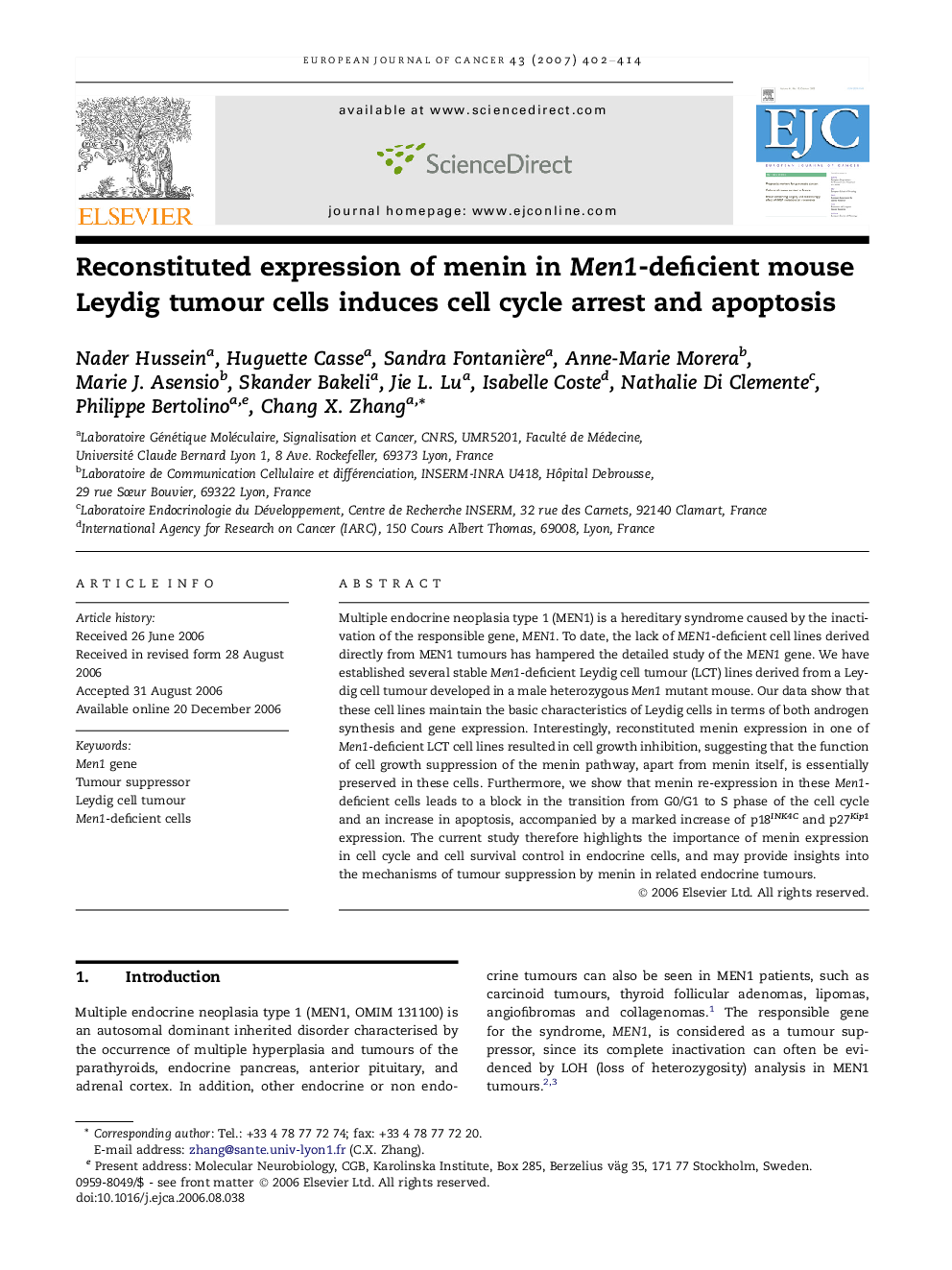| Article ID | Journal | Published Year | Pages | File Type |
|---|---|---|---|---|
| 2126261 | European Journal of Cancer | 2007 | 13 Pages |
Multiple endocrine neoplasia type 1 (MEN1) is a hereditary syndrome caused by the inactivation of the responsible gene, MEN1. To date, the lack of MEN1-deficient cell lines derived directly from MEN1 tumours has hampered the detailed study of the MEN1 gene. We have established several stable Men1-deficient Leydig cell tumour (LCT) lines derived from a Leydig cell tumour developed in a male heterozygous Men1 mutant mouse. Our data show that these cell lines maintain the basic characteristics of Leydig cells in terms of both androgen synthesis and gene expression. Interestingly, reconstituted menin expression in one of Men1-deficient LCT cell lines resulted in cell growth inhibition, suggesting that the function of cell growth suppression of the menin pathway, apart from menin itself, is essentially preserved in these cells. Furthermore, we show that menin re-expression in these Men1-deficient cells leads to a block in the transition from G0/G1 to S phase of the cell cycle and an increase in apoptosis, accompanied by a marked increase of p18INK4C and p27Kip1 expression. The current study therefore highlights the importance of menin expression in cell cycle and cell survival control in endocrine cells, and may provide insights into the mechanisms of tumour suppression by menin in related endocrine tumours.
